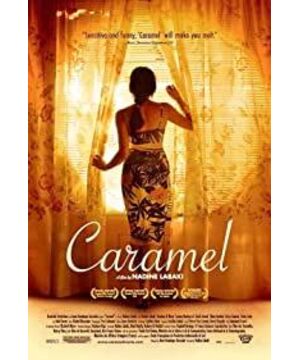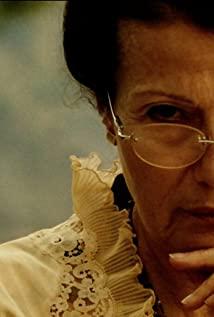The film puts the shot in a barber shop. The stories of a few women, accompanied by a faint chanting of music, the bitter and sweet taste. This is an out-and-out film made by women, women directors, and women acting for women.
Layari, a woman who works in a barbershop, fell in love with a married man and hid in an old car repair yard and had a tryst under an overpass. In order to prove something, she looked for a hotel to book a double room with a flustered look. Finally, holding the rose jasmine, the chocolate cake walked into a small hotel under the wretched gaze. She wiped the messy bathroom until it was white and shiny, shaken off the dust on the mattress, cleaned everything, and herself, put flowers, opened the cake, plugged in candles, and waited for the man's call. Just when he fell asleep, a text message came, saying that he could not get out of his wife. Fortunately, the sisters came, cried, and scolded themselves as idiots, and then a few women finally couldn't help laughing when they heard the love of men and women upstairs. The sisters invited the man's wife. At this time, the caramel with the progressive close-up lens finally appeared. It turned out that it had another function to remove the hair of the legs. So caramel became a tool for venting grievances, wiped off fiercely, peeled off fiercely, with the strength of jealousy. But happiness is someone else's, and the wedding anniversary is someone else's. After repairing her feet in the woman's house, Laari took the reward, walked out of his house with a proud look of the woman, and finally cried with her mouth covered, and finally understood that the man was someone else's.
Nisri is one of Layari's friends, and what she has to face is the upcoming wedding. What worries her is not just the old-fashioned fiance and his family, but also the fact that she is not a virgin. She gave herself a "Pompidou" surname indiscriminately, accompanied by her girlfriend's encouragement, went to the hospital for repair operations, and when she walked into the operating room, she left a solid back and said, "If Mr. Pompidou calls The phone said I went to the tailor!" The
cool Rima is a lesbian. The angular outline, the face that doesn't seem to smile, the earphones are always hanging on the ears. While faintly refusing to show her a good boy, he gave a dark-haired woman a warm, soft but ambiguous smile.
The old customer of the barbershop, Jammel, is a woman who cannot face aging. She auditioned again and again, dreaming of celebrities. When reminded of the blood stains behind the white skirt, she charmingly asked, "Girls, who do you have sanitary napkins?" If you think she just loves the show, then you are wrong, because at the end of the drama you will be surprised to find this woman sitting in the bathroom alone, taking out a small bottle of blood, pour it on the toilet paper, throw it into the most conspicuous place of the trash can, and take it again. Open a clean sanitary napkin, roll it up, and stuff it into the bottom of the bucket. A look of loneliness. It turns out that aging is more terrifying than embarrassment.
Rose, a seamstress who lives next door to the barbershop, takes care of her crazy mad sister all year round, but in her later years she has her love, an old gentleman who is willing to cut her already cut trousers again. She dyed her hair that she had neglected for many years, painted blue eye shadow and red lipstick, and wiped it off one by one in the noise of the crazy sister. The old gentleman, who was too late to wait, wore ankle-length trousers and left helplessly. The lonely back accompanied by the slow singing made my nose sore. When love comes, I can be together without being happy. Rose will accept this love when she is twenty years younger. Will she still want to accompany her sister until she grows lonely? They have been with them for too long, long enough to fear that their lives will change. They are too old, so old that they have only strength to love, and no strength to be together.
The film ends at Nisri's wedding, a warm and peaceful atmosphere. When Laari was squeezed into the pile of women scrambling to catch the flower ball, a pigeon flew by. The flower ball was not received, but it happened to catch the pigeon feces with his face. Amidst the laughter of the crowd, the pigeon flew away. ...The
final ending is always good. I like to watch such a peaceful ending, even if it is not as contagious as tragedy. The film’s interpretation of religious beliefs and concepts is not important to me. Some things that are taboo in the Muslim world, such as homosexuality, extramarital affairs, premarital sex, can be singled out as a topic, here is just a point. until. It’s best to click, but digging too deep will bring infinite depression.
Faintly, maybe this is reality. The love, hate, and sorrow that is broken into pieces is a fictional literary work. In reality, we must protect ourselves and sometimes others. There are deceptions, concealments, violations of intentions, regrets, unwillingness, pain, but also a safe and peaceful life. That’s good, if you add a little gratitude, it’s perfect...
View more about Caramel reviews











